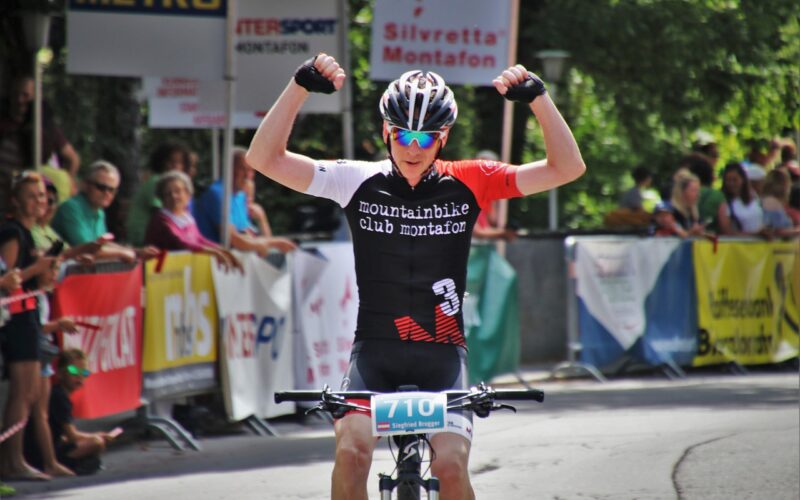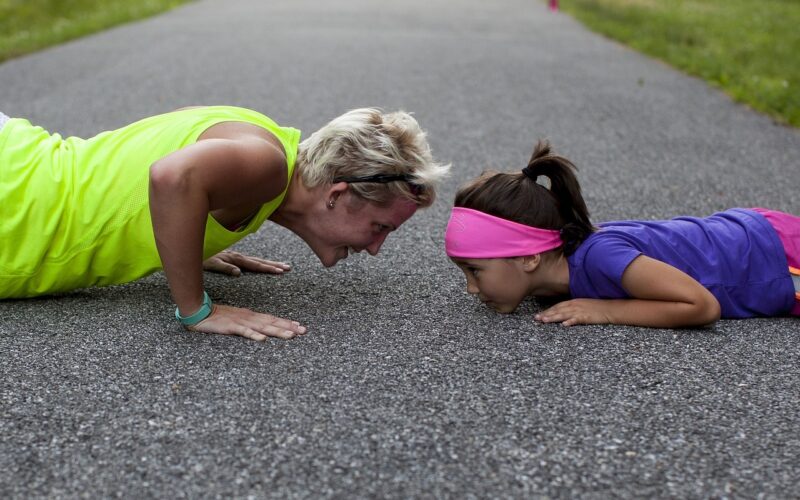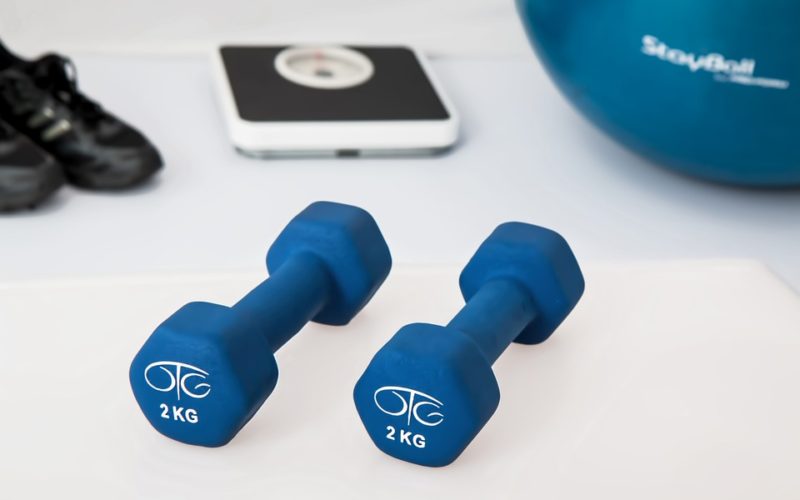Embracing the Prime of Life
The aphorism 'you're only young once' is a poignant reminder of the finite nature of youth, a time replete with vitality, resilience, and opportunities for pushing one's physical boundaries.
As a young adult, the body's ability to recover swiftly and adapt is at its peak, making this the optimal period to test and enhance one's physical capabilities.
Let's discuss the importance of seizing the prime years of life to embark on fitness challenges that foster not only physical strength but also mental robustness and emotional growth.
The golden window of physical potential
Youth is a period of significant biological advantages, where the body's resilience is at its peak. Younger individuals boast a more robust immune system, resulting in quicker healing and recovery times from illness and injury.
This inherent vitality is coupled with remarkable plasticity of the brain, allowing for easier acquisition of new skills, languages, and adaptation to changing environments.
Increased stamina
Recent studies in sports science have shed light on the age at which athletes are likely to reach peak performance in various fitness areas. Endurance sports, for instance, tend to see athletes peak later in life, around the age of 30 to 35.
This is attributed to a combination of physiological and psychological factors, including increased stamina and strategic race experience. In contrast, sports requiring bursts of speed and power, such as sprinting, often have much younger peak ages, typically early to mid-20s, given that natural speed tends to diminish as one ages.
Notably, these findings are not prescriptive; the impact of training, diet, and individual biology plays a significant role in the longevity of an athlete’s performance.
Fitness challenges to consider in your youth
Youth is the perfect time to push physical boundaries and explore various fitness challenges that not only bolster physical strength but also instil a sense of achievement and discipline.
Marathon running, for instance, is a commendable goal for young adults, providing a stern test of endurance and mental fortitude.
CrossFit competitions also offer a full-bodied workout regime, focusing on high-intensity functional movements that improve overall strength and conditioning. Additionally, obstacle races like Tough Mudder or Spartan Race encourage a combination of stamina, agility, and teamwork, making them a popular choice among the younger demographic.
These challenges serve as not just a measure of one’s physical capabilities but also a catalyst for lifelong fitness habits.
Engagement and commitment
Selecting the right fitness challenge is essential to maintain motivation and avoid injury.
Begin by assessing your current fitness level and consider any physical limitations. It's wise to consult with a healthcare professional if you have any concerns. Then, align your challenge with activities that pique your interest to ensure engagement and commitment.
Set realistic, measurable goals and consider incremental difficulty levels to progressively build your fitness. Incorporating variety in your fitness routine can help to sustain interest and work different muscle groups, thus promoting overall fitness and preventing burnout.
Remember, the ideal challenge should inspire you to push your boundaries while still being enjoyable and attainable.
Stay committed to fitness
Regardless of age, enlisting a personal trainer can be a wise decision when facing physically demanding challenges.
A personal trainer is not only a guide through the complexities of physical exercises but also a pillar of support, ensuring that each movement performed is safe and effective. Personal trainers possess the expertise to tailor workouts to an individual's capabilities, significantly reducing the risk of injury.
They also serve as a source of motivation, helping clients to stay committed to their fitness goals and overcome any psychological barriers that may arise during their physical endeavours.
Long-term health benefits
Pushing the body slightly beyond its comfort zone, through regular challenging exercise, stimulates physiological adaptations that can lead to a robust health profile over the long term.
This proactive approach—whether through strength training, endurance activities, or flexibility exercises—enhances cardiovascular efficiency, bolsters the immune system’s response, and improves metabolic function.
Furthermore, the process of muscle hypertrophy and the strengthening of bones can diminish the likelihood of chronic conditions like osteoporosis and type II diabetes, underscoring the interlinked nature of physical challenge and health longevity.
Reduce the risk of chronic conditions
Numerous health professionals and researchers uphold the notion that physical activity during childhood lays the groundwork for a healthier adulthood.
A study published in the British Journal of Sports Medicine suggests that children engaged in regular physical activity not only show immediate benefits in terms of fitness but are also more likely to lead active lifestyles as adults, thereby reducing the risk of chronic conditions such as heart disease and diabetes.
Moreover, the psychological benefits gained from exercise, including improved mood and cognitive function, further substantiate the connection between early-life exercise and long-term well-being.
Building mental and emotional resilience
Mental and emotional resilience are fortified through the act of overcoming physical challenges, cultivating an individual's ability to cope with stress and adversity.
Tackling strenuous activities, such as marathon running or mountain climbing, necessitates not only physical endurance but also mental fortitude. Participants often experience enhanced self-esteem and confidence upon realising their capacity to conquer formidable tasks.
This form of self-discovery through physical exertion serves as a cornerstone for the development of psychological resilience, enabling individuals to apply similar mental strategies to various aspects of everyday life.
A release valve
Fitness challenges often act as powerful catalysts for improving self-esteem and confidence.
By setting and achieving goals, individuals experience a sense of accomplishment that can heighten their self-worth and reinforce their belief in their own abilities. Moreover, regular participation in physical activity has been linked to better stress management, providing a release valve for daily pressures through the production of endorphins, which are natural mood lifters.
This not only alleviates stress but also contributes to a more positive outlook on life, further bolstering confidence levels.
Understanding your limits and preventing injury
As you push your body to meet new fitness challenges, it's essential to recognise and honour your physical limits to prevent injury. Increase the intensity of your workouts gradually, allowing your body to adapt safely.
Listen to its cues — if you experience pain beyond the normal exertion of muscles, it's a sign to pause and reassess. Rest days are crucial; they permit your body to recover and repair. Moreover, proper technique is key to avoiding strain, so consider working with a professional to refine your form.
Stay hydrated, nourish your body with a balanced diet, and ensure you're getting the necessary sleep to support your fitness regimen. Remember, attaining peak fitness is a marathon, not a sprint.
Structured training programmes
To optimise one's athletic performance and mitigate the risk of injuries, a holistic approach encompassing adequate training, nutrition, and rest is crucial.
Structured training programmes are designed to progressively build the body's strength and endurance while honing the skills necessary for a particular sport. Nutrition plays a pivotal role in fuelling the body with essential nutrients to sustain energy levels and facilitate recovery.
Equally important is rest; allowing the body time to repair and strengthen itself can prevent overuse injuries, thus maintaining an athlete’s optimal health and performance.
The time is now
Youth is a period brimming with potential, agility, and the capacity for rapid learning. It's the prime time to step out of one's comfort zone and undertake challenges that foster growth, be they intellectual, physical, or emotional.
Embracing such challenges not only aids in the development of resilience but also broadens horizons, enriches life experiences, and promotes a mindset geared towards continuous self-improvement.
Enhance cognitive function
With healthcare advancements and increased awareness of the benefits of an active lifestyle, there has never been a better time to challenge one's physical capacities.
Pushing your fitness boundaries not only improves bodily functions but also stimulates neurogenesis, the process of creating new brain cells, which enhances cognitive function.
By establishing rigorous but attainable fitness goals now, you are laying a foundation for health that can extend your lifespan and improve the quality of your later years, keeping chronic diseases at bay and maintaining mental acuity.













